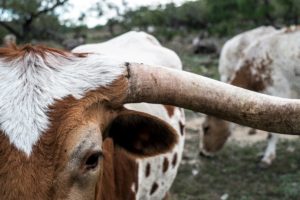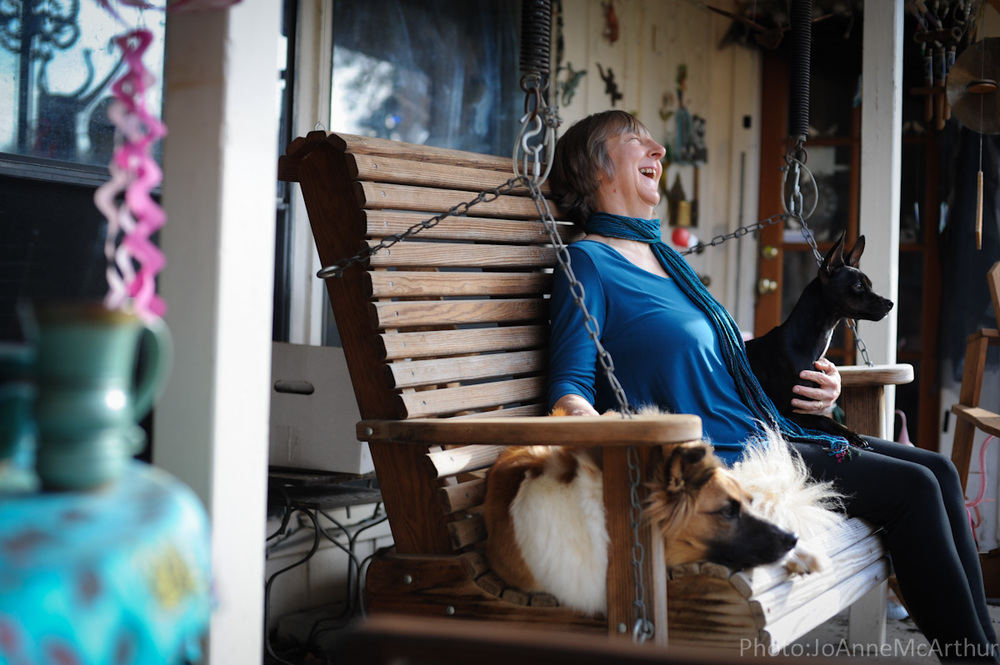 Acclaimed author and speaker Carol J. Adams speaks to Sarx about the Christian witness against violence and how the exercising of compassion towards animals requires conviction and clear perception.
Acclaimed author and speaker Carol J. Adams speaks to Sarx about the Christian witness against violence and how the exercising of compassion towards animals requires conviction and clear perception.
What is or could be the Christian witness in the face of violence and suffering?
 The challenge in tackling this question is that most humans, including Christians, don’t think of the eating of animals, the use of animals for the production of dairy and eggs, and the use of animals for entertainment, experimentation, or clothing, as violent and causing suffering. When I try to apply to our relations with animals, the Christian values of care and compassion, I do so in a fraught atmosphere. We have not yet agreed upon exactly who matters and who should be shown compassion, nor taken seriously our complicity in violence against animals.
The challenge in tackling this question is that most humans, including Christians, don’t think of the eating of animals, the use of animals for the production of dairy and eggs, and the use of animals for entertainment, experimentation, or clothing, as violent and causing suffering. When I try to apply to our relations with animals, the Christian values of care and compassion, I do so in a fraught atmosphere. We have not yet agreed upon exactly who matters and who should be shown compassion, nor taken seriously our complicity in violence against animals.
So we have to begin by clearly identifying that animals experience suffering and that killing them is violence.
The second step is to examine what scholars call “human exceptionalism.” What this means is that we conceive of ourselves, as humans, not only as different from, but “better” than, the other animals, in a way that gives us a different moral standing, and different moral rights.
What concerns me is that Christian beliefs are offered as alibis for abuse. Christian notions such as dominion and sacrifice are perverted to maintain perverted relationships undergirded by violence. Certainly, one of the impediments to seeing the plight of animals is scriptural illiteracy that perpetuates the idea of human superiority. For example, those who cite Genesis 1:26 and claim the idea that dominion justifies current exploitive relationships. Genesis 1 poetically describes relationships and the goodness of creation, and yet is used to excuse factory farms, slaughterhouses, and other forms of exploitation that destroy creation.
Christians have perpetuated a form of anthropomorphism: not that we are in God’s image but that God is in our image. So where do the animals fit in? Dominion and sacrifice justify keeping animals on people’s dinner plates.
My abiding concern is that people don’t want to examine who is on their plate. People want to be comfortable. Yet how often in a sermon do we hear of our duty to afflict the comfortable and comfort the afflicted? Apparently not over dinner it would seem!
It is significant that animals appear in the Bible as metaphorical descriptions of God. The very first metaphor for God in Genesis 1 is of God hovering or brooding over the earth like a nesting bird. One of the metaphors Jesus used for himself is how he wants to be like a mother hen gathering her chicks. Are we going to live in a world where Christians are comfortable with animal metaphors of caring yet eat the very literal beings upon whom the metaphors are based? That’s the world we’re in right now.
Is there a distinctively Christian way of approaching animal ethics?
We answer the question when we decide who we want to be in relationship with and understanding the consequences of those decisions. Do we make those decisions with the kind of care we are called to as Christians?
If someone decides to eat a hamburger, it is also a decision to be in a violent relationship with the animal who must die to become that hamburger. Eating a hamburger implicitly endorses the suffering.
Each of us is making decisions about our relationships with animals and our environment all the time. If we are going to live in a world where Christian values are lived out, the source of our problems is also the source of our solution. We have to begin by speaking honestly about what is happening now. It’s not easy because when we start to talk about what is happening to animals, people don’t want to know. We fear the grief of knowing what is happening to animals.
Yet this is one of the great gifts of Christianity. Christian practice of care acknowledges the importance of grieving. We aren’t going to live fully in this world and love truly without experiencing grief. To fear the grief from knowledge of animals’ lives (and deaths) is to deprive oneself of one of the true gifts of being in relationship with the world, caring enough to feel for another, and then allowing that caring to change your life.
What would you say to those who justify their lifestyle by saying Jesus ate meat?
Christian ethics is more than “What did Jesus do?” but “How are we to model our behaviour on Jesus’s teachings?” That is, “What would Jesus do now?”
Biblical literalists have a long “to do” list. Jesus talks about money more than anything else, so why should Christians follow Him literally in regards to what they think Jesus ate but not when it comes to selling all you have and giving it to the poor?

cc. Jo Anne MacArthur
When I hear someone ask, “Didn’t Jesus eat meat?”, I do not hear a faith question. I hear a defensive question that is intended to uphold the meat eater’s mental equilibrium.
None of us is living in first century Galilee. Rather we live in a century when meat eating necessitates horrific suffering and the devastation of the environment.
The key question to ask is, “what would Jesus do now”? A piece of meat turns the miracles of the loaves and fishes on its head. Where Jesus multiplied food to feed the hungry, our current food-producing system reduces food sources. One pound of flesh from a cow required the feeding of 16 pounds of vegetation to that cow.
What we are doing by continuing as meat eaters is the opposite of the miracle of loaves and fishes. Why would we continue to do this?
Does the contemporary Christian justification of meat eating parallel the condoning of slavery or women’s oppression?
Historically, human behavior at its worse has a greater need to justify and sanctify offensive behavior. We shift accountability from self to other. We delude our conscience by diluting the Bible to certain statements in justification. The minute people turn to the Bible to defend something that involves harm to others, I suspect they have stopped thinking and don’t want to engage with the consequences of proof-texting: the suffering of others. The Bible customized in this way becomes a hidey-hole where select things become certainty. No thought or action requires change, requires confronting injustice.
Are future Christians going to look back on our generation in horror at the abuses we have perpetrated on animals?
I am cautious but hope one day everyone will “get it.” Cautious because Christianity so often feeds into the notion of human exceptionalism and this becomes a stumbling block to identifying violence against those who aren’t human.
In Living Among Meat Eaters, I say, “Change is hard; not changing is harder. People just haven’t realized it yet.”
What would you say if someone claimed Jesus was in the slaughterhouse with the animals?
I’d say grief is painful and this notion of Divine accompaniment in the face of death helps deal with the grief or discomfort we might be feeling. We aren’t to be satisfied with the idea that Jesus is there. We are called to be there: to shut the slaughterhouses; to give water to the pigs being transported. We’re asked to live as servants, in servanthood, to care for the last and the least. Let’s get started.
Carol J. Adams is the author of The Sexual Politics of Meat which discuss the links between the oppression of women and that of non-human animals. She received her B.A. in English and History from the University of Rochester and an M. Div. from Yale University. She is the author of Woman-Battering in Fortress Press’s Creative Pastoral Care and Counseling Series. With Marie Fortune, she edited Violence Against Women and Children: A Christian Theological Sourcebook. She has also written about Christianity and the treatment of animals. Carol is passionate about vegan cooking, volunteering at the homeless day shelter run by her local Presbyterian Church, and her two rescue dogs Holly and Inky. This September she will be one of the keynoters at the Society for the Study of Christian Ethics annual meeting in Cambridge. www.caroljadams.com




